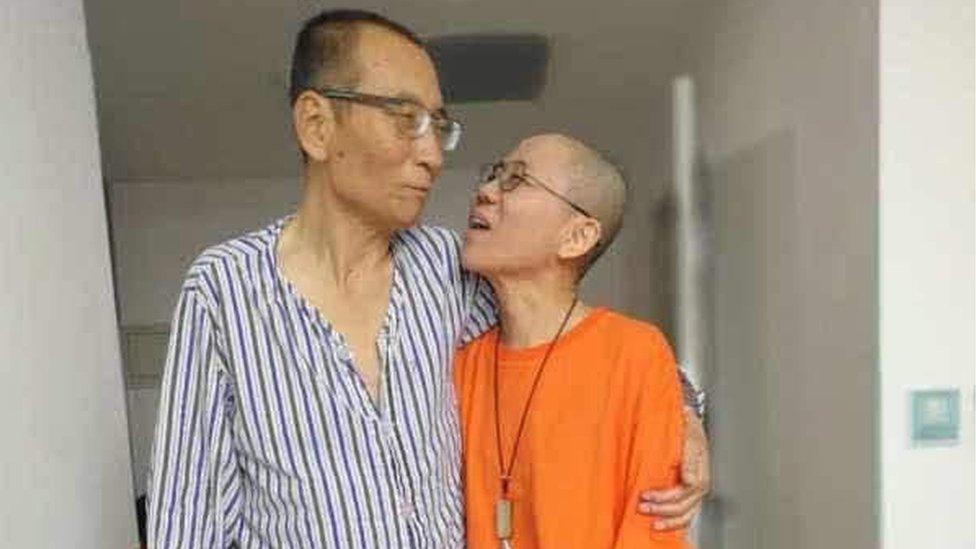Liu Xiaobo: Concern for China dissident's widow Liu Xia
- Published
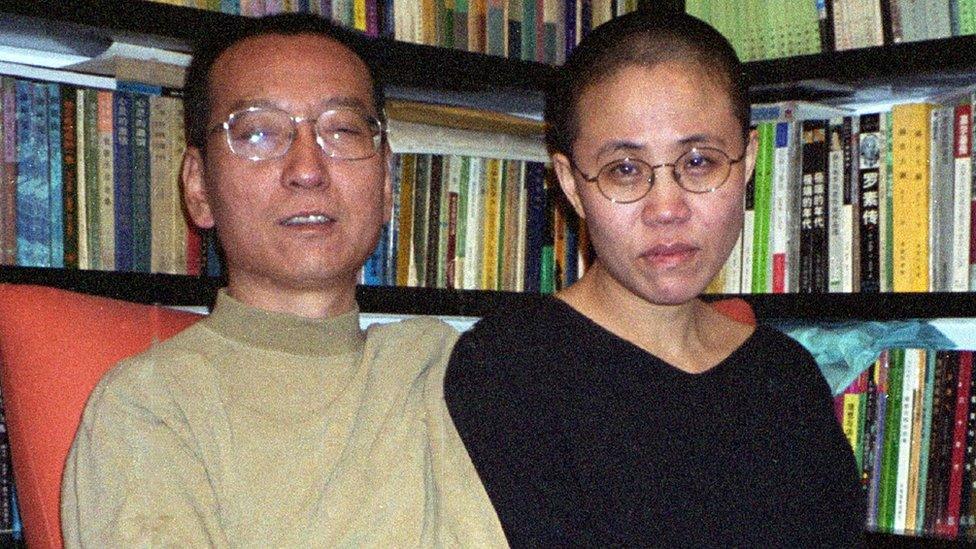
Liu Xiaobo and his poet wife, Liu Xia, in 2002
The committee that awards the Nobel Peace Prize says it is "deeply worried" about the widow of Liu Xiaobo, China's most prominent critic who died of liver cancer on Thursday.
The Norwegian Nobel Committee and the UN both urged China to free Liu Xia.
She has been held under house arrest without charge since 2010.
China has rejected international criticism for not allowing Mr Liu, who had been serving an 11-year prison term for "subversion", to be treated abroad.
The Nobel Committee, which gave him the Peace Prize in 2010, said Beijing bore a "heavy responsibility" for his death.
The committee's leader, Berit Reiss-Andersen, says the Chinese consulate in Oslo has refused to receive her visa application for travel so she can attend a possible funeral for Mr Liu.
She told the BBC she wanted to show her respect for the dissident's family "in this tragic situation" but that Beijing had missed an opportunity to make a "fantastic gesture" by letting her do so.
'Lift all restrictions on her'
Amid the controversy, attention is shifting to Mr Liu's wife, with mounting concern for her mental health.
In a statement the Norwegian Nobel Committee said it was "deeply worried about Liu Xia's situation" and called upon the Chinese authorities to "lift all restrictions they have put upon her".
"If she wants to leave China, there is no justification for denying her the opportunity to do so."
Liu Xia, a poet, is said to be suffering from depression after spending years under house arrest and heavy surveillance. She was allowed to visit her husband in hospital.
"She has been, what shall I say, contaminated by her husband's situation," Ms Reiss-Andersen told the BBC.
"She has been held in house arrest and has been isolated for several years now... and she has not been a political activist as her husband has been."
Germany, UK, France, the United States and Taiwan have called on China to allow her to leave the country if she wishes.
The call was endorsed by the UN High Commissioner for Human Rights, external, Zeid Ra'ad Al Hussein, who urged China to "guarantee Liu Xia's freedom of movement".
Rights group Amnesty International has started a petition for her release, saying "it's time the Chinese authorities stop cruelly punishing" the artist.
The Chinese foreign ministry said Liu Xia would be treated in accordance with the law.

Who was Liu Xiaobo?
Liu Xiaobo: China's most influential dissident
A university professor turned tireless rights campaigner, Liu Xiaobo was branded a criminal by authorities and repeatedly jailed throughout his life
He is credited with saving lives in the Tiananmen Square student protests of June 1989, which ended in bloodshed when they were quashed by government troops. He and other activists negotiated the safe exit of several hundred demonstrators
The 11-year jail term he was serving was handed down in 2009 after he compiled, with other intellectuals, the Charter 08 manifesto which called for multi-party democracy
Mr Liu was found guilty of trying to overthrow the state
Read more: The life of Liu Xiaobo

The ministry earlier hit back at criticism of Beijing's treatment of Mr Liu, saying: "The handling of Liu Xiaobo's case belongs to China's internal affairs, and foreign countries are in no position to make improper remarks."
Mr Liu won the Nobel Peace Prize in 2010 for his "long and non-violent struggle for fundamental human rights in China", but he was not permitted to travel to Norway to accept it.
Chinese authorities announced last month that he had liver cancer and moved him from prison to a hospital in the north-eastern city of Shenyang, where he was kept under heavy security.
In his final days, Western countries repeatedly urged China to give Mr Liu permission to seek palliative treatment elsewhere, which Beijing refused.
Chinese medical experts insisted he was too ill to travel, although Western doctors who examined him disagreed.
Mr Liu died "peacefully" on Thursday afternoon, surrounded by his wife and other relatives, his main doctor Teng Yue'e said. His final words to his wife were: "Live on well."
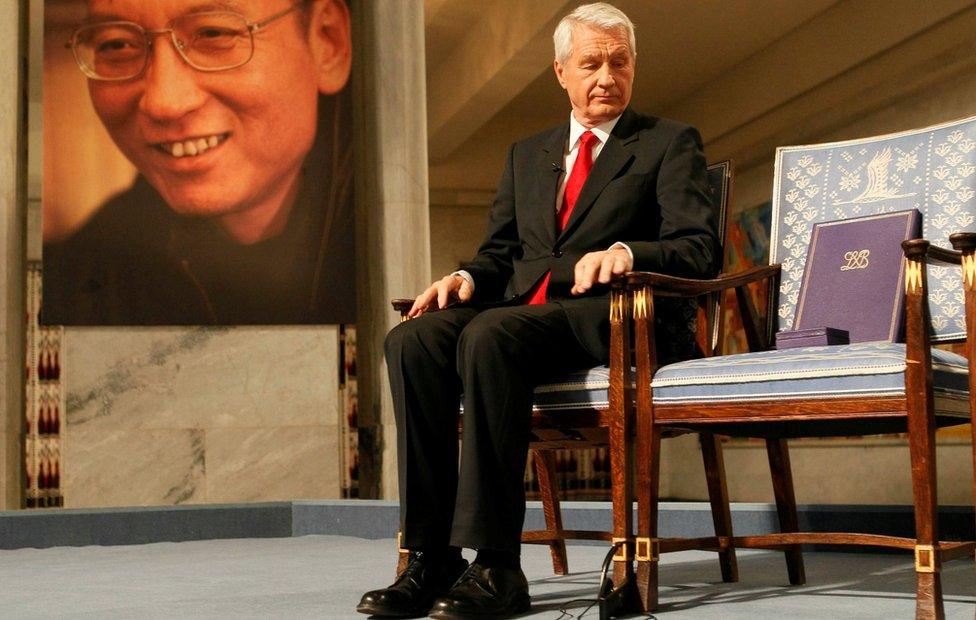
Mr Liu's absence at the 2010 Nobel ceremony was marked by an empty chair
In mainland China, international reports on Liu Xiaobo's death have been censored, and local media have carried virtually no reports apart from sparse coverage in English, correspondents say.
Communist Party mouthpiece Global Times said in an English editorial that Mr Liu was "a victim led astray" by the West.
Online in China, many comments on his death on social media also appear to have been censored.
Mr Liu's friends in China have been told by authorities not to organise any memorial events, according to Germany-based activist Tienchi Martin-Liao, who told the BBC that "many have been detained already".
But outside the mainland, Chinese activists have been openly mourning him, with hundreds in Hong Kong attending a vigil on Thursday night.
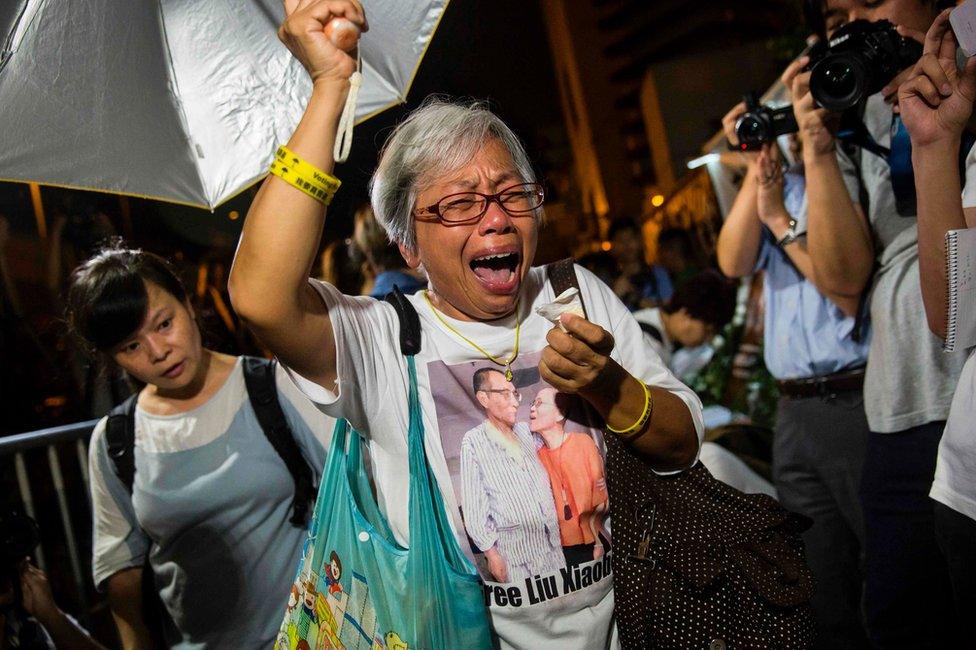
Supporters in Hong Kong gathered outside Beijing's Liaison Office to mourn Mr Liu's death
- Published13 July 2017
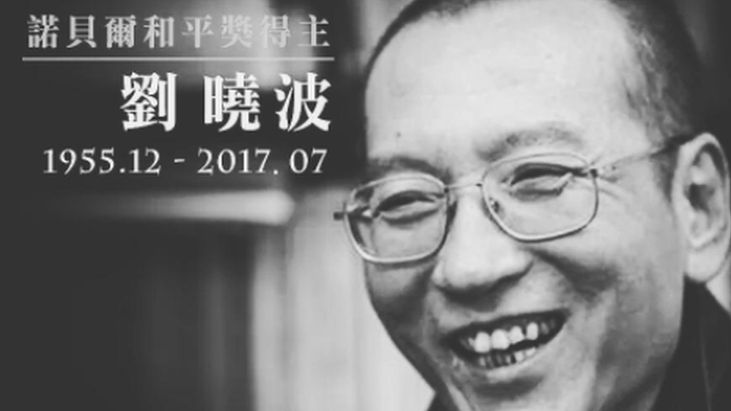
- Published13 July 2017
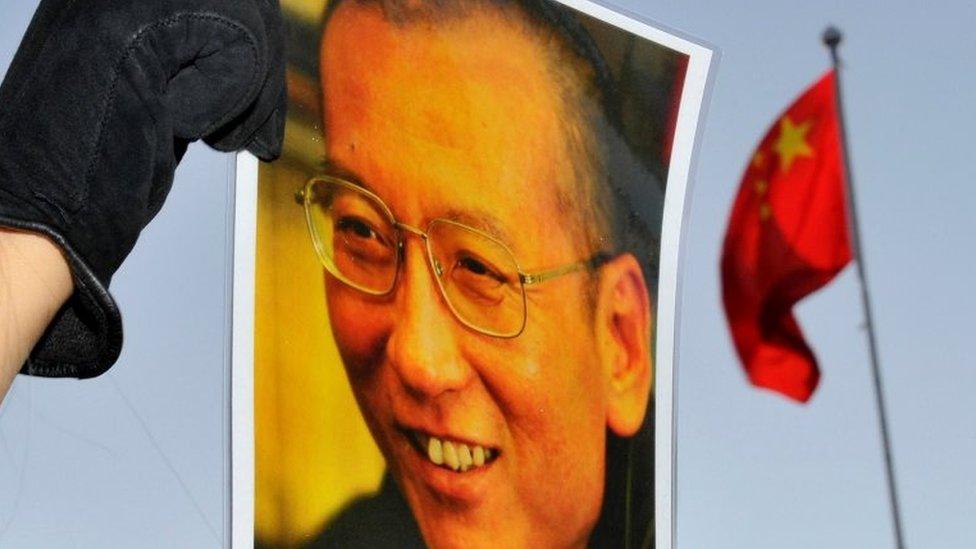
- Published14 July 2017
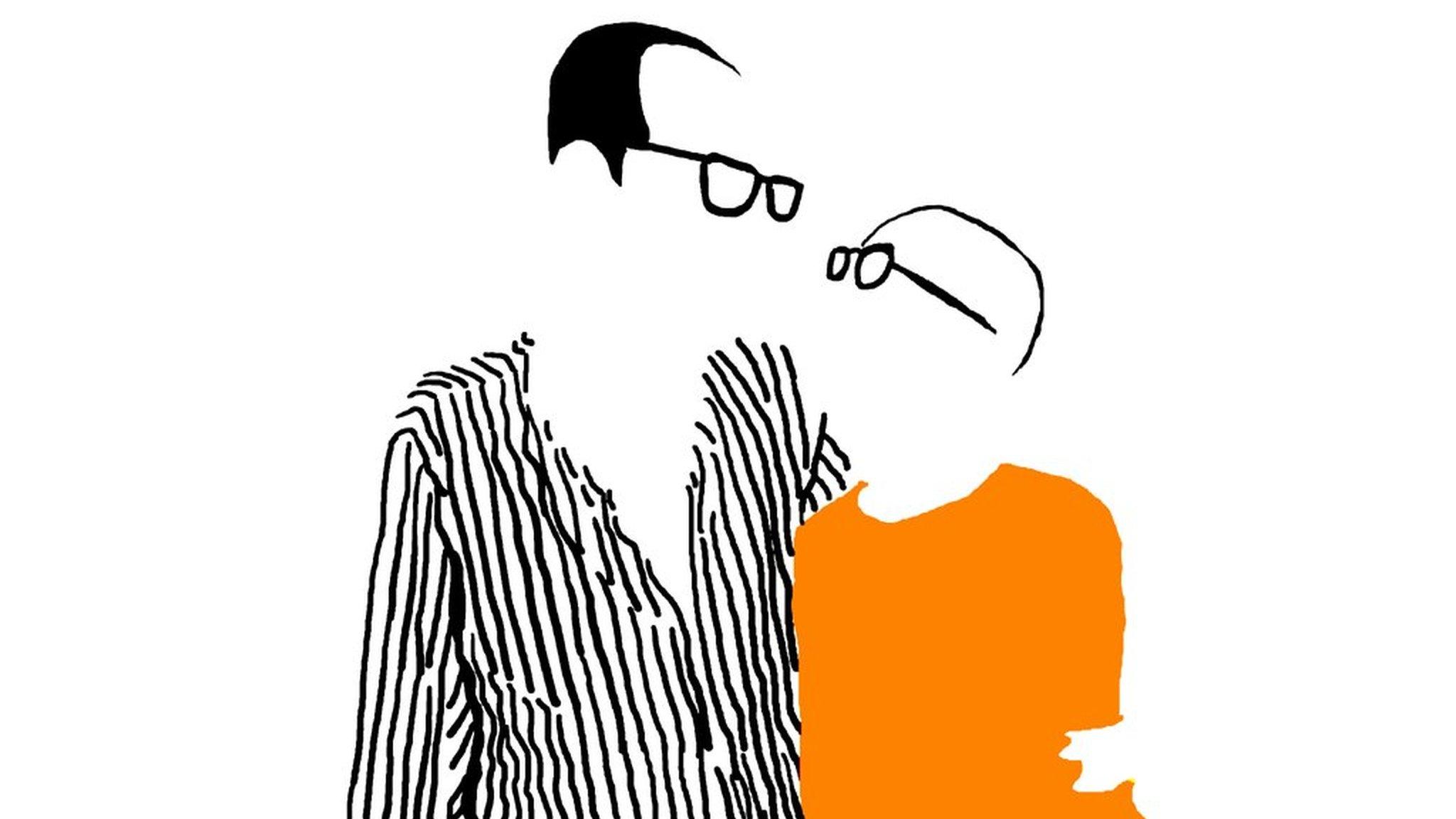
- Published11 July 2017
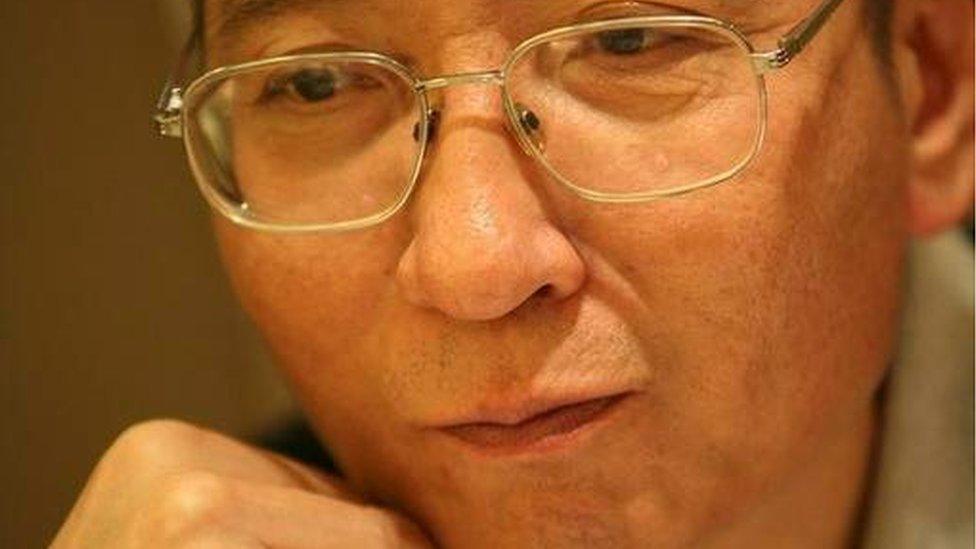
- Published11 July 2017
